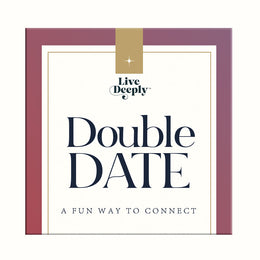How to Ask Great Questions
How well do you know the stories of your grandparents? How thoroughly have you heard what has shaped your friends?
Most people don’t ask enough questions to discover these answers, while others let their natural curiosity, emotional intelligence, and connection give them a sense of what questions to ask.
Well-crafted questions can connect, open, and guide discussion. They seek to know others’ story to really understand what drives them, what ails them, what makes them tick.
Research shows that asking questions builds a sense of closeness among participants. So strong is the power of questions, that the New York Times has offered a list purported to help people fall in love. When we listen carefully and share vulnerably, great relationships can blossom.
Todd Kashdan, author of Curious? discovered that “being interested is more important in cultivating a relationship and maintaining a relationship than being interesting; that’s what gets the dialogue going. It’s the secret juice of relationships.”
Getting started
Start by checking your mental attitude. If you genuinely are present, curious, and attentive, it will show. This, in turn, will allow others to feel more relaxed and willing to share themselves. Don’t let your eyes dart to your phone or your mind start wandering. People will sense if you’re completely present and completely interested.
As you think of questions, remember that everyone knows something you don’t, and it’s your job to discover something fascinating about them.
Being a good questioner necessarily means being a good listener. Have a genuine desire to understand the other person and practice empathy. When someone shares something painful, it can be difficult to stay present and not change topic.
Empathy isn’t just remembering to say “That must really be hard”, it’s figuring out how to bring difficulty into the light so it can be seen at all. Empathy isn’t just listening, it’s asking the questions whose answers need to be listened to. Empathy requires inquiry as much as imagination. Empathy means acknowledging a horizon of context that extends beyond what you can see. Ask the questions whose answers need to be heard.
Types of Questions
need answers are the hardest to ask. Balanced. Avoid interrogating the other person. In my eagerness to know others, and my curiosity for what makes them tick, I’ve often made the mistake of asking a flood of questions which leaves the other person feeling tired. While it’s important to be curious, make sure you’re making enough silence and leaving room for a balanced conversation.
Low pressure. Superlatives often intimidate people. Instead of asking for their favorite book, ask about a recent book they liked. Rather tahn their favorite vacation, inquire about one vacation that was meaningful.
Tips
Ask Why... three times. Often, the first answer you get is not the fullest picture. By digging deeper into the why, both parties are able to reach a truer understanding.
Focus your questions so they ask one thing at a time, keep it short. If you really want to know two different things, ask two different questions.
Use silence. Don’t interrupt, and be silent for long enough to give the other person time to gather their thoughts or remember anything they may have missed in their first answer.
Ask for lessons and stories. What did you learn from that experience? What do you wish you had known? What advice would you have for someone starting out? What is the craziest thing that happened to you in that role?
Great questions help establish a connection between participants, and invite a kind of dialogue that allows the speaker to share themselves. Often, great questions help people share experiences
that have formed them, shaped their worldview,
or become an important part of their memory. They also allow for dialogue and for learning more, creating a two-way conversation between parties, where both feel connected and understood. Great questions have some things in common:
Nuanced. Nuanced questions invite answers that require some thought, and can’t be answered with a simple one-word fact. Try asking for an opinion, story, or the evolution of a belief. Even better, ask for two sides of the same perspective— both the hopes and the fears, both the certainties and the doubts. This will give you a more holistic perspective, and a richer discussion. “When you moved from your hometown, what were your hopes and fears? Which came true?”
Vulnerable. These invite for authentic sharing. It helps if you go first by being disarmingly honest, setting the tone and model the vulnerability you hope for. Ask about what is really going on in their lives, or what parts of them are misunderstood or unappreciated.
Neutral. They don’t hold assumptions
or biases, instead being genuinely open and nonjudgmental about what the answer may be. Language, word choice, and internal assumptions are key factors in how a question is received as open or as reinforcing negative feelings, power dynamics, or stereotypes.
Empathetic. Some of the questions that most








Leave a comment